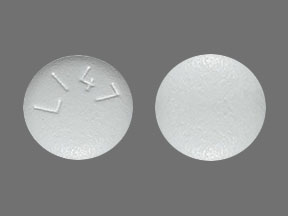
Zyrtec-d Allergy & Congestion Coupons & Savings Card – Discount Prices from $18.16
Brand for: Cetirizine-pseudoephedrine er
My prescription
Edit
5-120MG, Cetirizine-pseudoephedrine ER (60 Tablet Extended Release 12 Hours)
Select pharmacy

Walgreens
$18.16
COUPON PRICE
Albertsons
$39.40
COUPON PRICE
Walmart
$53.04
COUPON PRICEZyrtec-d Allergy & Congestion savings card
Show this card to your pharmacist
Walgreens
$18.16
BIN
ID
PCN
GRP
015995
LHKPY246259
GDC
DR33
Powered by
More prescriptions for nasal congestion
More prescriptions for nasal congestion
Price history for Zyrtec-d Allergy & Congestion (brand) & Cetirizine-pseudoephedrine ER (generic)
60 Tablet Extended Release 12 Hours, 5-120MG
Average retail price for Zyrtec-d Allergy & Congestion
Average retail price for Cetirizine-pseudoephedrine ER
Average SaveHealth price for Cetirizine-pseudoephedrine ER
Our price history data is based on aggregated prescription data collected from participating pharmacies in America. Our prescription data updates daily to reflect the latest price changes. If you notice a missing data point, it means there wasn't sufficient data available to generate a monetary value for that date.
Over the last 12 months, the average discount price of Zyrtec-d Allergy & Congestion is $28.99 using the SaveHealth savings card. That's an average savings of 62.73% on Zyrtec-d Allergy & Congestion with our discount card.
*Retail prices are based on pharmacy claims data, and may not be accurate when we don't have enough claims.
Zyrtec-d Allergy & Congestion (Cetirizine-pseudoephedrine ER) dosage forms
Dosage Quantity Price from Per unit 5-120MG 60 Tablet Extended Release 12 Hours $42.36 $0.71 5-120MG 12 Tablet Extended Release 12 Hours $15.67 $1.31 5-120MG 24 Tablet Extended Release 12 Hours $22.34 $0.93
| Dosage | Quantity | Price from | Per unit |
|---|---|---|---|
| 5-120MG | 60 Tablet Extended Release 12 Hours | $42.36 | $0.71 |
| 5-120MG | 12 Tablet Extended Release 12 Hours | $15.67 | $1.31 |
| 5-120MG | 24 Tablet Extended Release 12 Hours | $22.34 | $0.93 |
Does Zyrtec D help with congestion?
Yes, Zyrtec-D can help with congestion. It contains both cetirizine, an antihistamine, and pseudoephedrine, a decongestant, which can relieve nasal congestion.
What is the difference between Zyrtec D and Zyrtec allergy?
Zyrtec-D contains both cetirizine, an antihistamine, and pseudoephedrine, a decongestant. It is used to relieve allergy symptoms and nasal congestion. Zyrtec Allergy, on the other hand, contains only cetirizine and is used to treat allergy symptoms such as sneezing, runny nose, and itchy or watery eyes, without addressing nasal congestion.
Will Zyrtec-D help with clogged ears?
Zyrtec-D may help with clogged ears if the congestion is due to allergies or sinus issues. It contains an antihistamine (cetirizine) and a decongestant (pseudoephedrine), which can reduce nasal and sinus congestion, potentially relieving pressure in the ears. However, if the clogged ears are due to other causes, such as earwax buildup or an ear infection, Zyrtec-D may not be effective. It's advisable to consult a healthcare professional for a proper diagnosis and treatment plan.
Is Zyrtec allergy the same as Zyrtec-D?
Zyrtec and Zyrtec-D are not the same. Zyrtec contains cetirizine, an antihistamine used to relieve allergy symptoms. Zyrtec-D contains both cetirizine and pseudoephedrine, a decongestant that helps relieve nasal congestion. Therefore, Zyrtec-D is used for allergies with nasal congestion, while Zyrtec is used for general allergy symptoms.
Does Zyrtec-D make you drowsy?
Zyrtec-D is less likely to cause drowsiness compared to some other antihistamines. It contains cetirizine, which is a second-generation antihistamine known for having a lower risk of sedation. However, individual reactions can vary, and some people may still experience drowsiness. It is important to monitor how one personally reacts to the medication.
